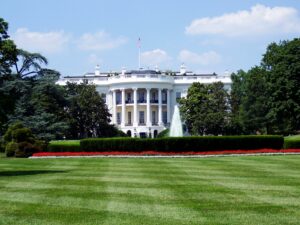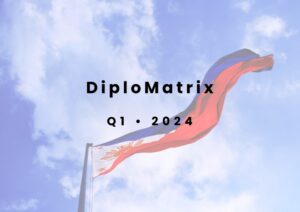Note d’introduction à la table ronde du 15 mars 2018 de l’Observatoire Asie du Sud-est.
par le Dr. Aries A. Arugay, Associate Professor, Department of Political Science and Co-Convenor, Strategic Studies Program, Center for Integrative and Development Studies, University of the Philippines-Diliman
From the start of his administration, Philippine President Rodrigo Duterte declared bold changes in the country’s formerly conservative and predictable foreign policy. The contempt for the West, admiration toward unlikely allies such as Russia and China, and indifference toward international law and norms were all essential departures from the nation’s previous positions.
This paper uses the concept of performative populism to analyze Duterte’s foreign policy, particularly toward the South China Sea dispute. It argues that as a specific political style of conducting foreign policy, populism can reorient established positions and biases but in turn generates uncertainty and erosion of credibility in the face of weak institutions and domestic distractions.
It also traces the changes that Duterte’s government instituted on the issue by embarking on more diplomatic and multi-faceted approach that includes trade, defense cooperation, joint development, infrastructure, and others. In the end, the sustainability of populist performances on foreign policy depends on reconciling the tensions and overlaps between the populist’s multiple audiences and constituencies. By way of conclusion, this paper examines the prospects of Duterte’s foreign policy given existing strategic realities, bureaucratic politics, and domestic political stability.
From the start of his administration, Philippine President Rodrigo Duterte declared bold changes in the country’s formerly conservative and predictable foreign policy. The contempt for the West, admiration toward unlikely allies such as Russia and China, and indifference toward international law and norms were all essential departures from the nation’s previous positions.
This paper uses the concept of performative populism to analyze Duterte’s foreign policy, particularly toward the South China Sea dispute. It argues that as a specific political style of conducting foreign policy, populism can reorient established positions and biases but in turn generates uncertainty and erosion of credibility in the face of weak institutions and domestic distractions.
It also traces the changes that Duterte’s government instituted on the issue by embarking on more diplomatic and multi-faceted approach that includes trade, defense cooperation, joint development, infrastructure, and others. In the end, the sustainability of populist performances on foreign policy depends on reconciling the tensions and overlaps between the populist’s multiple audiences and constituencies. By way of conclusion, this paper examines the prospects of Duterte’s foreign policy given existing strategic realities, bureaucratic politics, and domestic political stability.
- Introduction
- Populism as a Performative Political Style: Linkages with Foreign Policy
- Performative Populism and Duterte’s Foreign Policy
- Crisis, Breakdown, and Threat: Duterte’s Approach to the South China Sea Dispute
- Conclusion: The Foreign Policy Payoffs and Tradeoffs of Performative Populism




